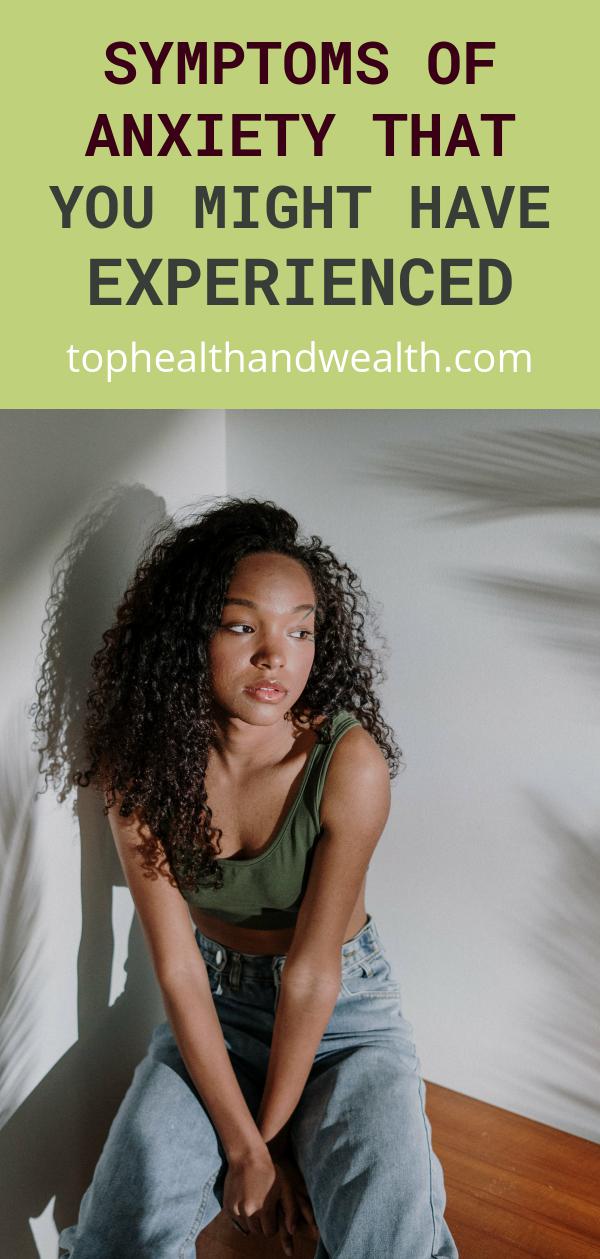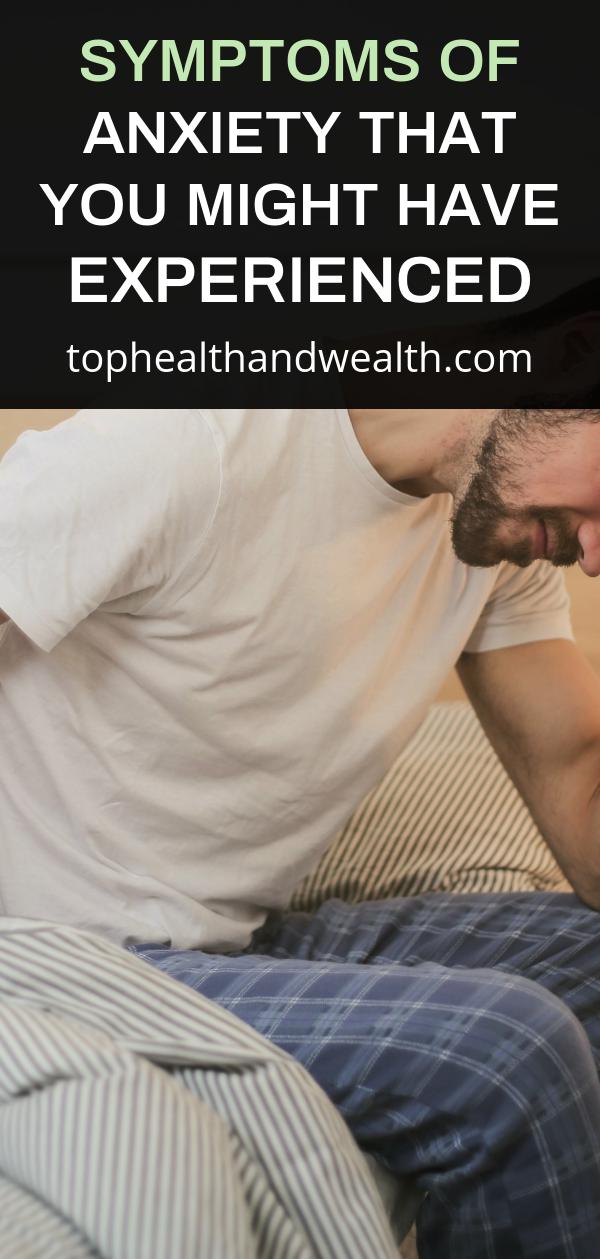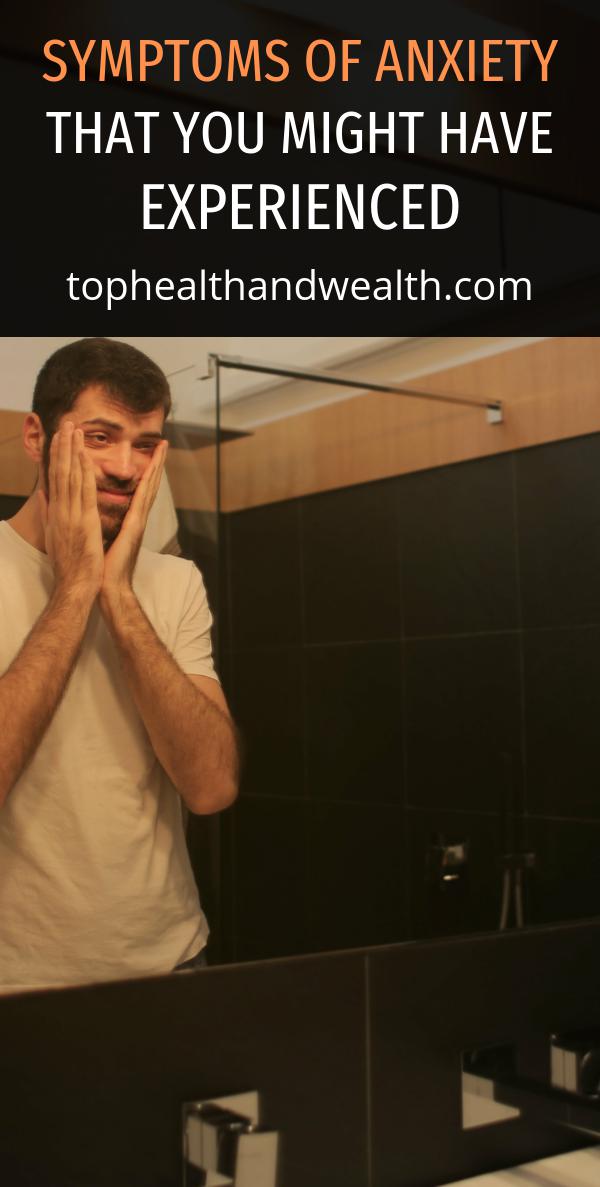Anxiety is a physical and mental condition. However, it is the combination of these two that makes anxiety so uncomfortable to live with. Here are some symptoms of anxiety that you may have experienced:
Chest tightness. When you feel tightness in your chest, you probably do not like being around people because you think you will feel embarrassed or uneasy. Or, perhaps you feel uncomfortable because you are embarrassed or uneasy when you have to talk to a group of people. These feelings are experienced as a type of anxiety that affects the level of communication between you and the surrounding people. It also can affect the emotional state of those around you.

Chest tightness and increased heart rate. If you experience higher than normal heart rate and chest tightness when you are around other people, then you most likely suffer from generalized anxiety disorder. Generalized anxiety disorder involves the excessive feeling of tension, fear, or worry, in any situation. This can also be worse at night.
The sense of falling apart. You know that something is wrong but you cannot figure out what. You may not feel as if there is anything wrong, but your inner voice is telling you that something is not right. The feeling of falling apart, then, is the first symptom of anxiety.
Sleep disturbances. This symptom of anxiety is caused by an increase in anxiety and exhaustion during the day. You may experience insomnia, excessive sleepiness, and daytime drowsiness. This can be a signal of anxiety.
Feelings of guilt. You may feel that your emotions are causing a loss of control. You may be having difficulty controlling your anger and irrational fear of failure, which may be making you feel guilty.
Feeling overwhelmed. You may find yourself overwhelmed when you try to make decisions on your own. If this is happening, you probably have a generalized anxiety disorder.
Start by taking a good look at your life. You can learn how to work with your emotions to get a handle on them. Get the help you need to combat your anxiety. There are many programs available to help you find a way to handle your fears and anxieties.
Work your way up to getting rid of your anxiety. Most people, once they understand how to do this, find that they no longer experience anxiety. However, there is always the chance that it will return. Just continue working on overcoming it and use the tools available to help you work on your confidence.

Develop routines to help you cope with everyday anxiety. When you do, you can start on your journey to finding a solution to your anxiety. Do not let it control you or ruin your life. You can find a way to stay healthy, safe, and happy. As you go along, you will also begin to experience fewer symptoms of anxiety.
Begin by asking yourself questions. By working on your answers to the questions that pop into your mind, you will get a better idea of what causes your anxiety. Then, choose the method that works best for you.
